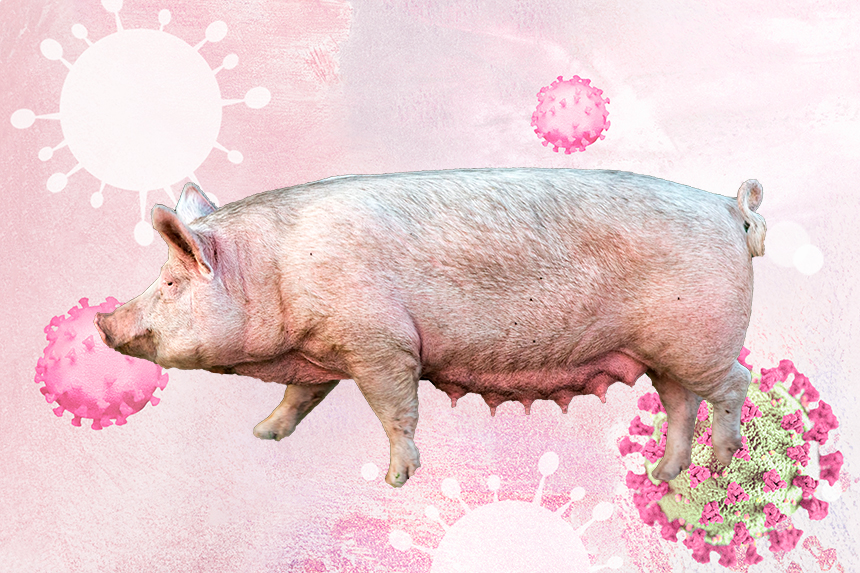Demands Made by the Alliance of Societal Animal Liberation in the Context of the Covid19-Crisis

Demands Made by the Alliance of Societal Animal Liberation in the Context of the Covid19-Crisis
Demands Made by the Alliance of Societal Animal Liberation in the Context of the Covid19-Crisis
• no financial support for animal-using businesses, companies or corporations, e.g. in agriculture (production of meat, milk, dairy, animal feed etc.) or in the entertainment industry (zoos, circuses, dolphinariums etc.)
• linking all Covid19-related bailout packages to animal-free, social and ecological criteria
• no government support measures for overproduction of goods of animal origin through purchase, storage, destruction or export
• no animal testing to combat Covid-19
• no killing of animals due to Covid19-related operational restrictions in animal agriculture
• no slaughter of animals in zoos, animal parks, dolphinaria or similar establishments as savings measures due to a lack of entrance fees
• ensuring the housing and care of all animals from the areas of animal agriculture and the entertainment industry that cannot be “released” into sanctuaries or similar facilities
• no easing of the already inadequate existing and upcoming regulations within agriculture (e.g. fertilizer regulation), in animal agriculture (e.g. animal welfare standards) and the pharmaceutical industry (e.g. animal welfare standards for animal testing, shortening of approval procedures for animal experiments)
• No erosion of the objections in approval procedures for new or expanding animal farms)
• Immediate redistribution of all antibiotics used in animal agriculture, that is usable for human medicine, to hospitals, doctors‘ offices, pharmacies and nursing homes
• socialisation of the pharmaceutical industry and consequential: remodeling of health and care system towards a cruelty-free, vegan and solidary practice
• education about the health risks of producing and consuming animal products
• preservation and protection of intact ecosystems and habitats
• immediate stop of deforestation for feed production
• no hunting, capturing and eating of animals
• conversion of monocultures into ecosystems with high biodiversity
• closure of all animal agriculture facilities to avoid pathogen multiplication and transmission
• limiting global warming below 1.5 degrees Celsius to avert the worst consequences of climate change and the consequential extinction of species
• no further restrictions on fundamental rights, but the fastest possible reintroduction while taking necessary measures to protect against infection
• no expansion of police and security agency powers to monitor telecommunications and other parts of social life (e.g. video surveillance)
• immediate closure of animal agriculture plants to protect against infections
• financial and social security for workers in the event of loss of earnings due to company closings by employers
• financing of medical care by businesses and companies
• ensuring immediate humane and affordable housing for migrant workers
• immediate termination of precarious employment: ban on temporary agency work and contracts for work for tasks that are part of the company’s core business; just wages and social security
• implementation of extensive occupational health and safety measures
• guaranteeing the common employee rights such as works council election, collective organization, strike and protection against dismissa
• offers of retraining and exit programs, financed by the businesses or companies and the public sector
The entire food production and distribution sector is to be organized by the following goals and values rather than by competitiveness: solidarity, equality and justice, elimination of misery, poverty and hunger as well as ending the exploitation of humans, animals and nature. To achieve this, various short and long-term measures are to be taken, including:
• financial and non-material support of solidary production and distribution points in the food sector, e.g. (organic and vegan) solidary farming, food cooperatives, consumer communities
• conversion of all farmland previously used for animal feed production or animal agriculture to organic and vegan farmland for plant-based food production; reclassification of farmland that becomes available in alignment wiht climate suitable and environmentally friendly principles
• The capitalist mode of production must be ended. In the meantime: socialisation of all businesses and companies that are relevant to people’s basic needs. This includes free and equal access of everyone to food (and its cultivated areas), water, energy, medical care, education. Access to these then as common goods considered resources is always to be perceived in a sense of a regional as well as global, intergenerational, animal- and environment-oriented resource justice. The socialisation is inevitably linked to a production transformation that realizes these aspects, e.g. in production free of animal use.
• general end to animal trade and animal product trade
• withdrawal and no signing of (neocolonial) free trade agreements, that were, among other things, supposed to be set up to strengthen animal agriculture and human exploitation; for example the EU-Mercosur agreement
• reparations and support for indigenous people who lost land due to expansive animal agriculture and who have been or are still politically persecuted
• discontinuation of all subsidies that have previously been granted to companies, factories and branches of production which are harmful to animals, the climate and the environment, and which are socially unjust and violate human rights. Subsidies include all public and state funds as well as tax incentives and fee reductions or exemptions.
• (re)construction of ecosystems (e.g. afforestation, wetting of former moorlands) on available farmland previously used for animal agriculture and feed production
• discontinuation of any patent on plants, animals, medicines etc.
• realizing animal rights and animal liberation
• involving animals in all matters and decisions that affect them. Therefore: Immediate introduction of the class action right for animal rights and animal liberation organizations that represent the needs and interests of animals
• financial and non-material support for sanctuaries, animal shelters, so-called wildlife release and rescue stations during the Covid19-crisis and beyond
